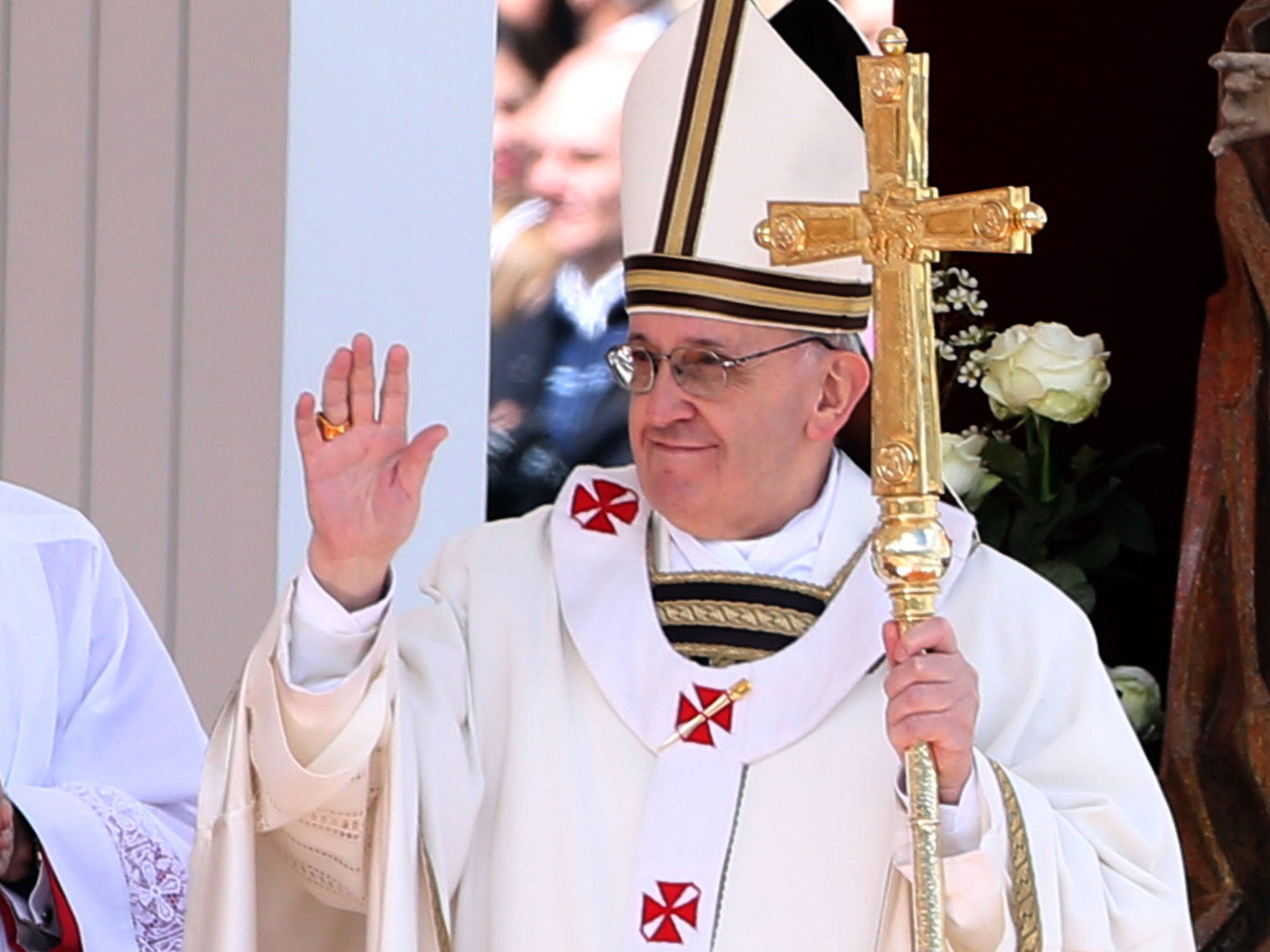Pope Francis defended against allegations of collusion with Argentine junta by alleged victim
Jesuit priest emphatically denies being denounced by Jorge Mario Bergoglio

Your support helps us to tell the story
From reproductive rights to climate change to Big Tech, The Independent is on the ground when the story is developing. Whether it's investigating the financials of Elon Musk's pro-Trump PAC or producing our latest documentary, 'The A Word', which shines a light on the American women fighting for reproductive rights, we know how important it is to parse out the facts from the messaging.
At such a critical moment in US history, we need reporters on the ground. Your donation allows us to keep sending journalists to speak to both sides of the story.
The Independent is trusted by Americans across the entire political spectrum. And unlike many other quality news outlets, we choose not to lock Americans out of our reporting and analysis with paywalls. We believe quality journalism should be available to everyone, paid for by those who can afford it.
Your support makes all the difference.A Jesuit priest who some had alleged was denounced to Argentina's military junta by the new Pope Francis has declared that it never happened.
Rev. Francisco Jalics, from Hungary but living in a German monastery, used to work with the poor in Argentine slums, when the Pope - then Jorge Mario Bergoglio - was head of the country's Jesuits.
He and another priest, Orlando Yorio, were kidnapped in 1976 and imprisoned for five months, as the 1976-1983 military junta kidnapped and killed thousands of people in a "dirty war" to eliminate opponents.
The Pope has said he told the priests to give up their work for their own safety, and they refused. Yorio, who is now dead, later accused him of effectively handing them to the authorities by declining to publicly endorse their work.
In a statement last Friday, Jalics said that and Bergoglio had long since reconciled. He said they "hugged solemnly" at a meeting in 2000, and that he considered the matter closed.
In that statement, posted on the German Jesuits' website, he said he "cannot comment on the role of Father Bergoglio in these events."
But yesterday he said: "The fact is: Orlando Yorio and I were not denounced by Father Bergoglio."
Jalics said "false information was spread" at the time that he and Yorio had gone to the slums because they were part of a guerrilla movement, and he suspects those rumors were the reason why they weren't freed immediately.
"I myself was once inclined to believe that we were the victims of a denunciation," Jalics said. But "at the end of the 90s, after numerous conversations, it became clear to me that this suspicion was unfounded. It is therefore wrong to assert that our capture took place at the initiative of Father Bergoglio."
Nobody disputes that Bergoglio, like most other Argentines, failed to openly confront the junta. But opinions differ on how much responsibility the new pope personally deserves for the Argentine Catholic Church's dark history of supporting the murderous dictatorship.
The new pope's authorized biographer, Sergio Rubin, argues that the Catholic Church in general failed to confront the junta, and Argentine human rights activists have noted that Bergoglio never collaborated with the dictatorship.
The Vatican spokesman, the Rev. Federico Lombardi, noted Friday that Argentine courts had never accused Bergoglio of any crime, that he had denied all accusations against him and that on the contrary "there have been many declarations demonstrating how much Bergoglio did to protect many persons at the time."
Join our commenting forum
Join thought-provoking conversations, follow other Independent readers and see their replies
0Comments